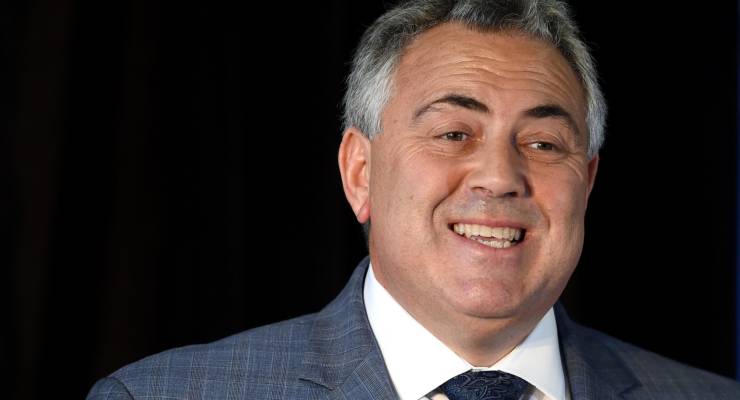
Former defamation litigant Joe Hockey.
If Australia is to overhaul its defamation legislation, the best first step would be to have the Australian Law Reform Commission (ALRC) do a full-scale inquiry, according to Melbourne University associate professor Jason Bosland.
One of its main priorities would be to look at the impact of technology on defamation law, which currently is the topic of a wide-ranging review by the Law Commission of Ontario. “It needs to be a full examination, not just a review. You would need a very wide-ranging analysis of defamation law and where the problems are,” Bosland told Crikey.
Bosland said one of the issues a review should look at would be republication, and jurisdiction. This came into play in the recent Rebel Wilson case against Bauer Media, in which the first decision found she was owed damages for work lost in the US, even though she wouldn’t have been able to sue in the US for defamation because of its First Amendment.
“You can sue on one cause of action in one jurisdiction, but claim for damages for things that flow from that publication (i.e. work lost in the US),” Bosland said. “It’s a way of circumventing restrictions in place to do with publication in those jurisdictions.”
Technology has also changed what constitutes a publisher. Last week, the High Court allowed an appeal against Google for unfavourable autocomplete and image search results by Milorad Trkulja, who was shot in the back in Melbourne in 2004.
In the NSW government’s review of the Defamation Act, published last week, it noted concerns about how publishing on social media, text messaging or elsewhere online is affected by defamation law.
[What would it take to fix Australia’s restrictive defamation laws?]
Another problem with defamation law in Australia is that the defences available to news outlets are not sufficient. Bosland said that if someone sues a news organisation for defamation, even if that story was in the public interest, it is very difficult for news organisations to win.
“It’s so easy for the cause of action to be made out, and so difficult to establish defences. The defences available have been interpreted so narrowly that they’re practically useless,” he said. “The defences need to give latitude [for journalists to have] made mistakes. [The court] needs to not look at it through the lens of hindsight.”
Bosland also said the way the law is constructed is weighted towards the person suing — they get to select what they’re alleging the publication means, which the court then decides. “What you do as a claimant lawyer is select a meaning that won’t be able to be defended, even if it’s just one of a number of meanings that could be obtained,” he said.
Even if reporting is in the public interest, and it could be defended, the costs of defending a defamation action can be prohibitive. Bosland cited the Joe Hockey case against Fairfax, which he said cost the publisher about $1 million, even though they won 85% of the case.
“Even if publishers have a defence, I’m sure there are times they don’t publish because the cost of going through proving it outweighs the public interest,” he said.
And that was before the Rebel Wilson case, which effectively removed the statutory cap on damages if the court decides aggravated damages should apply.
It is possible that Australia could adopt a “serious harm” test — which the UK introduced when its defamation laws were overhauled in 2013 — intended to reduce the number of minor cases that cost more to litigate than the damages were worth.
But, even if the ALRC recommends an overhaul of the law, it’s not necessarily a green light for change. It would require either consensus among all states to change the current laws, or a new federal law that would take precedence over current state and territory laws. In 2014, the ALRC recommended a statutory and limited tort of privacy, which has yet to be acted on.








I’ve had experience on both sides of the defamation fence. First as a journalist and later the executive in charge of news and current affairs at Seven; and more recently as the aggrieved victim of a series of false and defamatory articles in The Australian. We need to focus on the key issue: preventing gratuitous attacks by or through the media, and when they occur providing an effective make-good process. It must principally be about repairing any unfair damage done to people’s reputations. It should not simply be a process whereby the defamed get to build a swimming pool or take their family on an overseas holiday. In any case, major media outlets are seldom frightened by the prospect of losing a defo case. They write the money off as a cost of doing business. Like many things in life, prevention is better than cure!